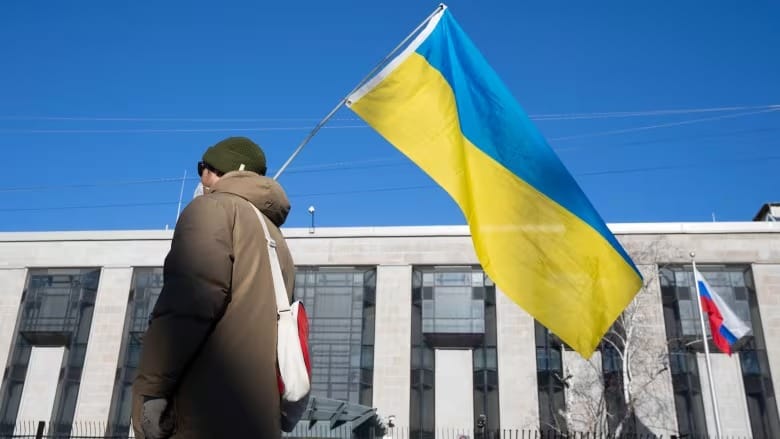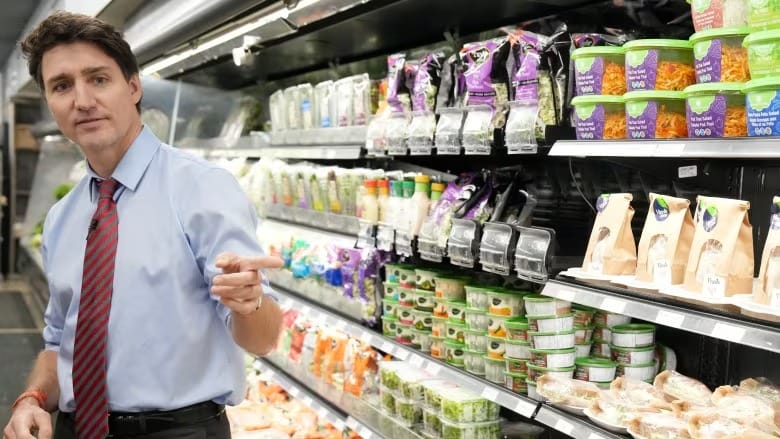Staffing at Canada's embassy in Moscow falls to 'bare bones' level
The state of the embassy may be weighing against calls to expel Russian diplomats from Canada

Canada’s embassy in Moscow is facing such severe staffing shortages that expelling any Russian diplomats from Canada could lead to the embassy’s closure, according to documents disclosed through the inquiry into foreign interference.
As of July, Canada had only 17 diplomats stationed in Russia—a staffing level one expert described as “bare bones” and the lowest in decades. That number has since declined further.
“Canada currently has twelve diplomats in Russia, with some positions vacant, pending staffing,” said Charlotte MacLeod, spokesperson for Global Affairs Canada.
In contrast, Russia has 68 accredited diplomats stationed across Canada.
Following Russia’s invasion of Ukraine, many have urged Canada to expel Russian diplomats, following the lead of other nations. In February 2023, the House of Commons foreign affairs committee recommended expelling Russian diplomats involved in activities beyond their official diplomatic status.
The inquiry into foreign interference has heard testimony indicating that Russian diplomats in Canada are spreading disinformation aimed at destabilizing Canadian society.
While Canada has imposed economic sanctions on over 3,000 individuals and entities in Russia, Belarus, Ukraine, and Moldova since Russia’s 2014 annexation of Crimea, the government has not expelled any Russian diplomats since 2018. That year, Canada expelled four Russian officials and denied accreditation to three others following a nerve agent attack in the UK. In response, Russia expelled four Canadian diplomats.
During recent testimony at the foreign interference inquiry, Prime Minister Justin Trudeau explained Canada’s reluctance to expel diplomats, emphasizing the importance of maintaining a diplomatic presence in Russia.
“I know for a fact that Canada’s diplomatic presence in Russia is at a critical level, where further reductions could jeopardize the embassy's sustainability,” Trudeau said. “There is value in having Canadians on the ground, especially given Russia’s disruptive behavior on the world stage.”
Trudeau acknowledged that expelling Russian diplomats could provoke retaliatory actions from Moscow, which would further diminish Canada’s already limited diplomatic presence.
“The Russian delegation in Canada could lose some staff and remain functional. For us, it’s different,” Trudeau added. “If we reduce our numbers further, we may not be able to operate in Russia at all.”
He argued that maintaining a presence in Russia allows Canada to better support Ukraine and uphold the global rules-based order. “Even during the Cold War, Canada maintained a presence in Moscow,” he noted.
Strained Relations and Security Concerns
Canada’s Ambassador to Russia, Sarah Taylor, recently described the bilateral relationship as “probably the poorest it’s ever been” since the Soviet Union’s collapse.
MacLeod emphasized that staffing levels at Canadian embassies are determined by national priorities and strategic interests. “The Canadian embassy in Moscow is a mid-sized mission, and staffing varies based on multiple factors,” she said.
She added that Global Affairs does not publicly discuss decisions regarding diplomatic expulsions or operational details for security reasons.
Ferry de Kerckhove, a former senior Canadian diplomat, said the embassy’s current staffing is close to the “bare, bare bones” level—far below the roughly 100 diplomats posted during his tenure in Moscow in the early 1990s.
“It must be hell to work in Moscow right now,” de Kerckhove remarked, adding that typical staffing would usually be around 40 to 45 diplomats.
He suggested security concerns are likely a key factor in the low staffing, given Russia’s increasingly hostile treatment of journalists and other foreign nationals. “The Canadian government may not want to expose its staff to undue risks,” he said. “In Russia, anything is possible—detaining or using diplomats is not beyond imagination.”
De Kerckhove stressed the importance of maintaining consular services for Canadians and security for embassy staff but noted that the lack of economic ties means few, if any, Canadian trade representatives remain in Moscow.
If Canada were forced to close the embassy, it would send a strong diplomatic signal. “That would be a declaration in itself,” he said.
Retaliation Risks and Strategic Considerations
Dani Belo, a professor of international relations and fellow at the Canadian Global Affairs Institute, noted that diplomatic expulsions often provoke proportional retaliation.
“When one side expels diplomats, the other typically responds in kind,” Belo said. “The challenge comes when staffing levels are already critically low, making it difficult to operate the mission effectively.”
Belo emphasized the need for Canada to maintain communication with Russia, particularly on Arctic issues such as search-and-rescue operations. Despite the diminished trade relationship, Canada and Russia share responsibilities in the Arctic region.
He also questioned the large number of Russian diplomats in Canada, given the relatively limited scope of the bilateral relationship. “There seems to be a disproportionate number of diplomats handling what is now a fairly simple relationship,” Belo observed.





